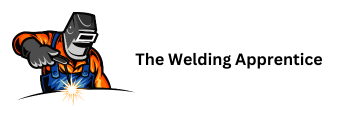Are you intrigued by the prospect of a career in underwater welding? Curious about the financial rewards this unique profession offers? Look no further, as we dive into the captivating world of underwater welding job salaries. Discover the exciting possibilities and lucrative potential that await those skilled enough to weld beneath the waves. Whether you’re a seasoned professional or just starting to explore this fascinating field, we’ve got all the information you need to make an informed decision about pursuing this underwater adventure. Let’s explore the depths of underwater welding job salaries together!

Factors Affecting Underwater Welding Job Salary
When it comes to determining the salary of an underwater welder, there are several crucial factors that come into play. These factors can significantly impact how much you can earn in this line of work. Let’s take a closer look at each of these factors.
Experience and Skill Level
One of the primary factors that affect the salary of an underwater welder is their level of experience and skill. As with any job, the more experience you have in the industry, the higher your earning potential. Employers value experienced welders who have a proven track record of success in their field. Additionally, having a high level of skill in underwater welding techniques can also lead to higher salaries, as it demonstrates your proficiency and ability to handle complex projects.
Certifications and Training
Another factor that can have a significant impact on your salary as an underwater welder is the certifications and training you possess. These certifications not only validate your skills and knowledge but also indicate to employers that you have met certain industry standards. By obtaining relevant certifications, such as those from professional organizations like the American Welding Society (AWS) and the Divers Institute of Technology (DIT), you can enhance your marketability and negotiate higher salaries.
Location
The location in which you work as an underwater welder can also influence your salary. Different regions or countries may have varying demand for underwater welding services, which can affect the number of available job opportunities and the corresponding pay scales. Additionally, certain locations may have a higher cost of living, which can result in employers offering higher salaries to attract and retain talent. Therefore, it is essential to consider the geographical factors when evaluating potential job opportunities and their respective salary offerings.
Type of Employer
The type of employer you work for can also impact your salary as an underwater welder. There are various types of employers in this field, including commercial diving companies, construction companies, offshore oil and gas companies, and government agencies. Different employers may have different budgetary constraints, project scopes, and revenue streams, which can influence the salaries they are willing to offer. For example, working for a reputable and financially stable company might provide better salary prospects compared to working for a small-scale contractor.
Type of Industry
The specific industry you work in as an underwater welder can also play a role in determining your salary. Underwater welding is a versatile skill set that can be applied to various industries, such as marine construction, offshore drilling, and underwater infrastructure maintenance. Certain industries, particularly those with high-risk projects or niche demands, may offer higher salaries to attract skilled underwater welders. It is essential to research and understand the salary trends in your desired industry to ensure you are making informed decisions about your career path.
Average Salary Range for Underwater Welders
Now that we have explored the factors that affect underwater welding job salaries, let’s take a closer look at the average salary range you can expect in this profession.
Entry-Level Salary
As an entry-level underwater welder, you can typically expect to earn a starting salary in the range of $30,000 to $50,000 per year. This salary range accounts for various factors, such as your level of experience, geographical location, and the type of employer. It is essential to note that entry-level positions often require less experience and offer opportunities for growth as you gain more skills and expertise.
Experienced Salary
Once you have gained a few years of experience in the field, your earning potential as an underwater welder can increase significantly. Experienced underwater welders can expect to earn an annual salary in the range of $50,000 to $80,000. This salary range reflects the value placed on your skills, expertise, and the ability to handle more complex projects. Additionally, factors such as certifications, training, and geographic location can also impact your earning potential.
Top-Level Salary
At the top level of the profession, underwater welders who have established themselves as experts and leaders can earn an annual salary upwards of $100,000. These top-level salaries usually result from years of experience, specialized expertise, and a proven track record of success. By demonstrating exceptional skills, taking on leadership positions, and working with renowned companies, underwater welders can reach the highest echelons of the salary scale.
Factors Determining Entry-Level Salary
While we have touched upon the factors that influence an entry-level underwater welding job salary, let’s delve deeper into each aspect.
Experience in Welding
When starting as an underwater welder, the level of experience you bring from your previous welding work can impact your entry-level salary. If you have prior experience in welding, whether it’s in an industrial setting or as a land-based welder, it can work in your favor. Employers often value transferable skills and may offer a higher starting salary to candidates with a solid foundation in welding techniques.
Diving Qualifications
Diving qualifications are another crucial aspect that can influence your entry-level salary as an underwater welder. Employers seek candidates who possess diving certifications, such as those offered by the Diver Certification Board of Canada (DCBC) or the Association of Diving Contractors International (ADCI). These certifications demonstrate your competence in diving and your understanding of safety protocols, which can make you a more attractive candidate to potential employers.
Geographical Factors
The geographical location where you begin your underwater welding career can also impact your entry-level salary. Different regions have different levels of demand for underwater welding services, which can affect the job market and salary offerings. Higher-demand areas, such as densely populated coastal regions or regions with significant underwater infrastructure, may offer higher starting salaries to attract skilled underwater welders. Conversely, locations with lower demand may have lower starting salary ranges.
Factors Determining Experienced Salary
As you gain experience as an underwater welder, several factors can determine the salary you can earn at an experienced level.
Years of Experience
The number of years you have spent working as an underwater welder is a significant factor in determining your experienced salary. As you accumulate experience, you become more proficient in your work, can handle more complex projects, and tend to have a higher success rate. Employers recognize the value of this experience and are willing to compensate experienced underwater welders accordingly.
Additional Skills
In addition to welding expertise, possessing additional skills related to underwater construction, inspection, or engineering can also impact your experienced salary as an underwater welder. For example, if you have experience with underwater cutting techniques, non-destructive testing, or working with specialized equipment, employers may be willing to offer higher salaries due to the added value you bring to the table.
Depth and Complexity of Dives
The depth and complexity of the dives you have successfully completed can also influence your experienced salary as an underwater welder. Welding in deeper waters or more challenging environments requires a higher level of skill and carries more risk. Employers recognize this and often provide higher compensation for welders who have demonstrated the ability to handle these demanding conditions safely and effectively.

Factors Determining Top-Level Salary
Reaching the top level of salary as an underwater welder requires a combination of expertise, specialization, and recognition within the industry. Let’s explore the factors that contribute to this level of earning potential.
Expertise and Specializations
At the top level of the profession, expertise and specializations play a significant role in determining your salary. By becoming a recognized expert in a specific area of underwater welding, such as pipeline welding, structural welding, or underwater inspection, you can command higher salaries. Employers value specialized knowledge and often seek out professionals who can offer unique insights and solutions to complex challenges.
Employment with Renowned Companies
Working with renowned companies in the underwater welding industry can also influence your top-level salary. Employers often value the experience gained by working with reputable organizations, as it demonstrates a higher level of professionalism and exposure to cutting-edge projects. The reputation of the company you work for can have a direct impact on the salary offers you receive, as renowned companies tend to have larger budgets and may be more willing to invest in top talent.
Leadership Positions
Taking on leadership positions within the underwater welding field can significantly impact your top-level salary. This can include roles such as project manager, team leader, or diving supervisor. Employers recognize the additional responsibilities and skills required for these positions and often offer higher salaries to professionals who can effectively lead and manage teams. Leadership positions also provide opportunities for career advancement and increased earning potential.
Benefits and Perks for Underwater Welders
In addition to salary, underwater welders can enjoy a range of benefits and perks that make the profession even more appealing. Let’s explore some of the common benefits and perks offered to underwater welders.
Hazard Pay
Underwater welding is considered a high-risk occupation due to the inherent dangers associated with working in underwater environments. To compensate for the risks involved, many employers provide hazard pay to underwater welders. Hazard pay is an additional amount paid on top of the regular salary and serves as a recognition of the challenging conditions and potential hazards faced by underwater welders.
Per Diem Allowance
Due to the nature of underwater welding projects, which often require travel and extended stays away from home, many employers provide per diem allowances. Per diem allowances cover the expenses associated with food, lodging, and other daily living costs while working on remote or offshore projects. This perk can help alleviate the financial burden of being away from home and can significantly enhance your overall compensation package.
Health and Safety Insurance
Underwater welding comes with its fair share of risks and safety concerns. To ensure the well-being of their employees, employers often provide health and safety insurance coverage. This insurance can include medical coverage, disability benefits, and other forms of protection in the event of work-related accidents or injuries. Having access to comprehensive health and safety insurance can provide peace of mind and financial security for underwater welders.
Retirement Plans
Planning for retirement is essential for anyone, including underwater welders. Many employers offer retirement plans, such as 401(k) or pension schemes, to help their employees save for the future. These plans allow underwater welders to contribute a portion of their earnings towards retirement, often with the added benefit of employer matching contributions. Having a retirement plan can ensure that you are financially secure even after retiring from your underwater welding career.
Travel Opportunities
One of the unique perks of being an underwater welder is the opportunity to travel to different locations and work on exciting projects. While travel is often a requirement for remote or offshore assignments, many underwater welders embrace it as an opportunity to explore new environments and gain diverse experiences. Travel opportunities allow you to work in different regions, learn from different teams, and broaden your professional and personal horizons.
Salary Comparison: Commercial Diving vs. Underwater Welding
When considering a career in underwater welding, it is important to understand how it stacks up against other related professions, such as commercial diving. Let’s compare the average salaries for commercial divers and explore the added earnings underwater welding can offer.
Average Salaries for Commercial Divers
According to industry reports, the average salary for commercial divers typically ranges from $40,000 to $70,000 per year. Commercial diving involves a range of underwater tasks, such as inspection, repair, and construction, which may or may not include welding. Salaries for commercial divers can vary based on factors such as experience, location, certifications, and level of responsibility.
Added Earnings from Underwater Welding
Underwater welding is a specialized skill within the broader field of commercial diving. Due to the additional expertise and specialized training required, underwater welders often earn higher salaries compared to their non-welding counterparts. Although specific data on the added earnings from underwater welding is not readily available, it is safe to assume that the welding aspect of the job can significantly increase an underwater welder’s earning potential.
Future of Underwater Welding Job Salaries
As we look ahead, several factors indicate a positive outlook for the future of underwater welding job salaries. Understanding these trends can help current and aspiring underwater welders make informed decisions about their careers.
Growth in Demand
The demand for underwater welding services is expected to continue to grow in the coming years. As underwater infrastructure ages and new underwater projects emerge, the need for skilled underwater welders will increase. Additionally, offshore oil and gas exploration, marine construction, and renewable energy projects are all areas where underwater welding expertise is crucial. This growth in demand will likely result in higher salaries as employers vie for qualified talent in this competitive field.
Technological Advancements
Technological advancements are also expected to impact underwater welding job salaries. As new tools, equipment, and techniques are developed, underwater welders who can adapt to these advancements and demonstrate proficiency with cutting-edge technology and methodologies will be in high demand. Employers are willing to pay a premium for underwater welders who can efficiently utilize innovative tools and contribute to improved project outcomes.
Impact of Industry Trends
Finally, keeping an eye on emerging industry trends can help underwater welders anticipate changes in salary expectations. For example, the increasing focus on renewable energy sources has led to the development of offshore wind farms, which require underwater welding expertise for maintenance and installation. Similarly, the growth in underwater robotics and remotely operated vehicles (ROVs) has created new opportunities for underwater welders with the skills to operate and maintain these advanced technologies. By staying informed about industry trends, underwater welders can position themselves to earn higher salaries in niche markets.
Challenges Faced by Underwater Welders
While the field of underwater welding offers many rewarding opportunities, it is not without its challenges. Let’s explore some of the common challenges faced by underwater welders.
Physical Strain and Safety Risks
Underwater welding is a physically demanding job that requires individuals to work in challenging environments. Welders often have to perform tasks in limited visibility, deal with extreme water pressure, and work in confined spaces. These conditions can lead to physical strain and increase the risk of injuries. It is vital for underwater welders to prioritize their safety, undergo proper training, and adhere to strict safety protocols to mitigate these risks.
Seasonal and Inconsistent Work
Another challenge faced by underwater welders is the seasonal and inconsistent nature of the work. Job opportunities in this field can vary depending on factors such as weather conditions, project timelines, and the overall health of the industry. This variability can make it challenging to establish a stable income or find consistent work throughout the year. Underwater welders may need to be proactive in seeking out new projects and managing their finances to ensure smooth transitions between jobs.
Long Working Hours
Underwater welding projects often require long working hours and tight deadlines. Depending on the project’s scope and urgency, welders may need to work extended shifts or face tight schedules to complete their assignments. This can result in fatigue and work-related stress. It is important for underwater welders to maintain a healthy work-life balance and prioritize self-care to avoid burnout.
Conclusion
Underwater welding job salaries are influenced by various factors, including experience, certifications, geographical location, type of employer, and industry. As an underwater welder, your earning potential can increase as you gain experience, acquire additional skills, and take on leadership positions. Benefits and perks, such as hazard pay, per diem allowances, and retirement plans, further enhance the attractiveness of this profession. While underwater welding presents its fair share of challenges, including physical strain, seasonal work, and long hours, the future outlook for salaries in this field is positive due to growth in demand, technological advancements, and industry trends. By understanding these factors and considerations, you can navigate the underwater welding job market and make informed decisions about your career path.
